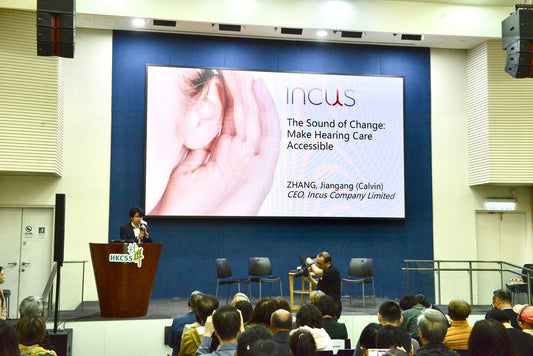
After discovering you have a reduced ability to hear, it is natural to be anxious to learn if the hearing loss is permanent or temporary. Depending on the cause, hearing loss might be reversible as long as you seek medical help in time. Here, we discuss the symptoms and causes of hearing loss and why some hearing loss is irreversible.
Can Hearing Loss Be Permanent?
Yes, hearing loss can be permanent.
When hearing loss is permanent, it means that there is no way to restore hearing sensitivity.
If you have recently noticed a drop in your hearing ability, you may have a treatable temporary hearing loss. If you wait too long before seeking medical attention, a temporary hearing loss might become permanent and irreversible.
How to Tell If Hearing Loss Is Temporary or Permanent
You should ask a medical professional to determine if your hearing loss is temporary or permanent.
That said, the signs of temporary hearing loss include:
- The hearing loss occurred suddenly rather than gradually.
- Tinnitus or ringing in the ears.
- Recent exposure to loud noise.
- Pain or infection in the ear.
- Recent head trauma or injury.
- The ears feel clogged. Earwax, fluids or objects might be obstructing sounds from reaching the eardrum.
How Long Does Temporary Hearing Loss Last?
The duration of a temporary hearing loss depends on its cause.
For example, temporary hearing loss caused by clogged ears may last until a trained professional helps remove whatever is filling the ear canal.
When it comes to ear infections, sensitivity to sounds may recover after treating the underlying ear infection.
Sudden temporary hearing loss caused by exposure to loud sounds usually lasts for less than 48 hours and subsides without intervention. However, be aware that the impact of noise on hearing accumulates over time. In other words, exposure to loud music or noise can cause temporary hearing loss but also permanent damage to the auditory system.
Ear Infections: When Temporary Hearing Loss Becomes Permanent
Can ear infections cause permanent hearing loss?
Usually, ear infections do not lead to permanent hearing loss.
However, there are exceptions.
Sometimes, ear infections cause irreversible damage to the eardrum or bones within the ear. Bacteria residing in the ear could break them down.
The key is to seek medical help as soon as possible, as an ear infection could end up causing permanent hearing loss if left untreated.
Causes of Permanent Hearing Loss
The main causes of permanent hearing loss are:
- Noise exposure: Repeat exposure to loud noises or one-off exposure to extremely loud sounds would cause permanent hearing loss.
- Age: Age is another common cause of hearing loss. The data shows that, unfortunately, two-thirds of us will have hearing loss by the time we are 70-79 years old.
- Underlying health conditions: Some diseases could lead to permanent hearing loss. Examples include autoimmune diseases, Ménière's disease, hereditary diseases and viral infections.
- Injury or trauma: Physical damage to the auditory system can lead to permanent hearing loss.
- Drugs: Hearing loss is a possible side-effect of certain drugs.
What to Do About Permanent Hearing Loss
You may consider getting a hearing device if you have permanent hearing loss.
Hearing devices use microphones to pick up sounds from the environment and carry out digital signal processing to produce clear sounds that are easier to comprehend.
A suitable hearing device might improve your quality of life and preserve your remaining hearing ability. Traditional hearing devices are expensive, so you should first know what to expect from a hearing consultation to protect your interests. Educating yourself about hearing aids and the different hearing aid styles will help you make a more informed decision.
Conclusion
Hearing loss can be either permanent or temporary.
Hearing loss can sometimes be treatable or be a sign of other underlying health problems. That is why you should always seek medical attention if you suspect you have hearing loss.
If your hearing loss is indeed permanent, a hearing device might help improve your quality of life and protect your remaining hearing ability.



